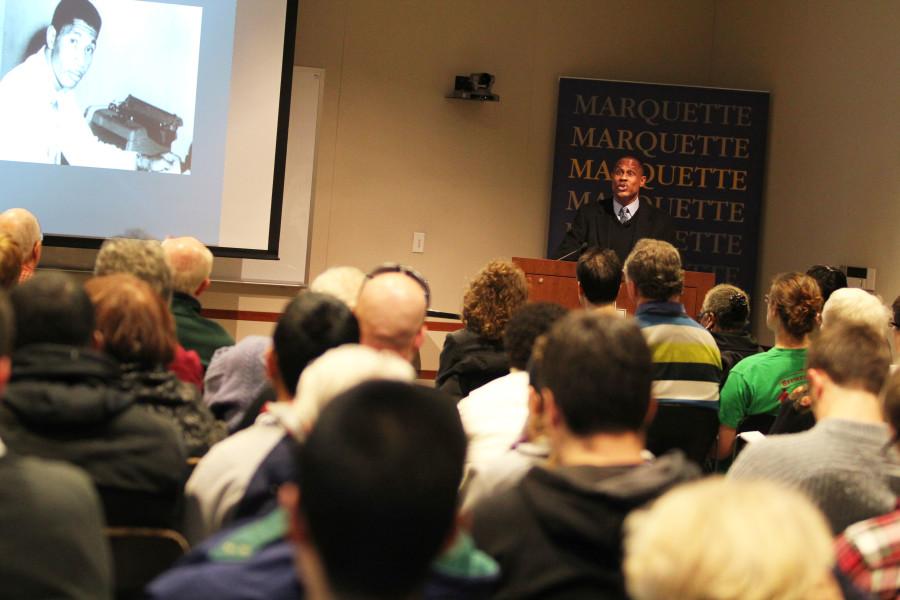It’s one of the worst dilemmas college students may face: choosing between taking a class three times a week at 8 a.m. or once a week on Saturday.
Ratemyprofessor.com can make this decision much easier.
The website scores professors on a five-point scale using anonymously submitted surveys from students. The scores are based on four categories: easiness, helpfulness, clarity and overall quality. Since its founding in 1999, the site has accumulated 13 million opinions for more than 1.7 million professors in 8,000 schools across the U.S., Canada and the U.K.
“I always check my professors before enrolling to see what the next semester’s work load will be like,” said Emma Kern, a sophomore in the College of Arts & Sciences. “The comments are helpful to see how many papers I’ll have to write, how many exams I’ll have to take.”
Many students turn most to the easiness rating when guiding their decision between two professors.
For as many students that use the site, however, Marquette professors display a wide range of opinions. For some, the site can provide an unmediated outlet for students to provide their peers with feedback.
“I sometimes get a better sense of how the logistics of the course are working from a student point of view from RateMyProfessor,” said history professor Laura Matthew, who received a 4.7 out of 5.0 in overall quality.
In terms of structuring courses, professors tend to look more toward course evaluations, as is the case for Dan Bergen, an adjunct professor of English.
“The class evaluations have higher response rates and provide me with a more accurate picture of the course and my teaching,” he wrote in an email.
Bryan Massingale, a professor of theology, feels similarly.
“I’m far more likely to change or improve in response to what students say on those evaluations compared to what may be on that website,” Massingale said.
For other professors, especially for those who did not know of the site’s existence, the only reliable way for students to provide feedback is face-to-face.
“I was not aware of these ratings and would normally not look to anonymous ratings as a measure of my work,” said Curtis Carter, a philosophy professor. “Student comments are always appreciated but only if presented in person.”
The site even allows for a chili pepper to be assigned to a particularly good-looking professor.
“It’s always exciting to look up a potential professor and see the pepper,” said Lauren Hooker, a sophomore in the College of Health Sciences.
Some professors, flattered with the distinction, embrace the pepper status.
“I take that rating quite seriously — it has justified several pairs of new shoes,” Matthew said.
Massingale knows some professors joke about whether or not they have one.
“If it helps students pay better attention to my lectures, I can’t complain,” he said.
Editor’s note: Originally, the quote that begins with “I’m far more likely to change or improve in response…” was attributed to Dan Bergan, but was really a quote from Bryan Massingale. The Tribune corrected the attribution and regrets the error.




